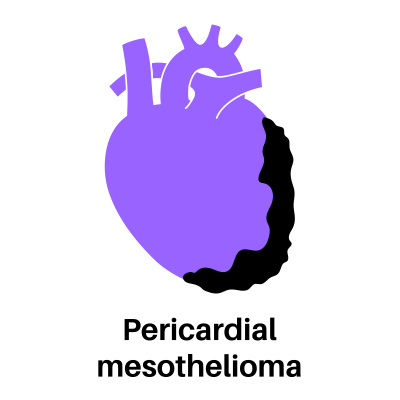
Pericardial mesothelioma is a rare and aggressive form of cancer that affects the pericardium, the thin membrane surrounding the heart. This type of mesothelioma accounts for approximately 1% of all mesothelioma cases and poses significant diagnostic and therapeutic challenges. Understanding pericardial mesothelioma is crucial for patients, caregivers, and medical professionals to navigate its complexities effectively.
Types of Pericardial Mesothelioma
Pericardial mesothelioma can be classified based on the type of cells involved:
1. Epithelioid Pericardial Mesothelioma: The most common and generally the least aggressive form. It is characterized by epithelial cells that resemble normal mesothelial cells.
2. Sarcomatoid Pericardial Mesothelioma: A more aggressive form, consisting of spindle-shaped cells. It has a poorer prognosis compared to epithelioid mesothelioma.
3. Biphasic Pericardial Mesothelioma: A combination of epithelioid and sarcomatoid cells. The prognosis and treatment response vary depending on the proportion of each cell type.
Causes of Pericardial Mesothelioma
The primary cause of pericardial mesothelioma is exposure to asbestos. When asbestos fibers are inhaled or ingested, they can travel through the bloodstream and become lodged in the pericardium. Over time, these fibers cause inflammation and genetic mutations, leading to the development of cancerous cells.
Symptoms of Pericardial Mesothelioma
The symptoms of pericardial mesothelioma are often nonspecific and can be mistaken for other cardiac conditions. Common symptoms include:
– Chest pain
– Shortness of breath (dyspnea)
– Persistent cough
– Fatigue
– Irregular heartbeats (arrhythmias)
– Fluid buildup around the heart (pericardial effusion)
Due to the rarity of the disease and the nonspecific nature of the symptoms, pericardial mesothelioma is often diagnosed at an advanced stage.
Diagnosis of Pericardial Mesothelioma
Diagnosing pericardial mesothelioma involves several steps:
1. Imaging Tests: Chest X-rays, CT scans, and MRIs are used to detect abnormalities in the pericardium.
2. Echocardiogram: This ultrasound test provides detailed images of the heart and pericardium, helping to identify fluid buildup and masses.
3. Pericardiocentesis: A procedure to remove and analyze fluid from the pericardium. This can help in detecting cancerous cells.
4. Biopsy: The definitive diagnosis is made through a biopsy, where a tissue sample is taken from the pericardium and examined for cancerous cells.
Stages of Pericardial Mesothelioma
Due to the rarity of pericardial mesothelioma, there is no standardized staging system. However, it is generally categorized into localized (confined to the pericardium) and advanced (spread to other parts of the body).
Treatment Options for Pericardial Mesothelioma
Treatment for pericardial mesothelioma is challenging due to the proximity of the tumor to the heart. Common treatment options include:
1. Surgery: Surgical options are limited but may include pericardiectomy (removal of the pericardium) or debulking surgery to reduce tumor size.
2. Chemotherapy: Often used to shrink tumors and manage symptoms. Common drugs include pemetrexed and cisplatin.
3. Radiation Therapy: Used to target and kill cancerous cells. It is often combined with other treatments to enhance effectiveness.
4. Palliative Care: Focuses on relieving symptoms and improving quality of life. This may include pain management and procedures to remove fluid buildup.
Clinical Trials for Pericardial Mesothelioma
Given the rarity of pericardial mesothelioma, clinical trials are crucial for developing new treatments. Patients are encouraged to participate in trials that explore innovative therapies, such as immunotherapy and targeted therapy.
Prognosis and Survival Rates
The prognosis for pericardial mesothelioma is generally poor due to the aggressive nature of the disease and the challenges in diagnosis and treatment. The average survival rate ranges from 6 to 12 months after diagnosis. However, early detection and advances in treatment can improve outcomes for some patients.
Support and Resources for Pericardial Mesothelioma Patients
Support groups, counseling, and educational resources are essential for patients and families coping with pericardial mesothelioma. Organizations like the American Cancer Society offer valuable resources and support networks.
In summary, pericardial mesothelioma is a rare and challenging cancer primarily caused by asbestos exposure. Early detection, innovative treatments, and comprehensive support are crucial for improving the quality of life and outcomes for patients.
